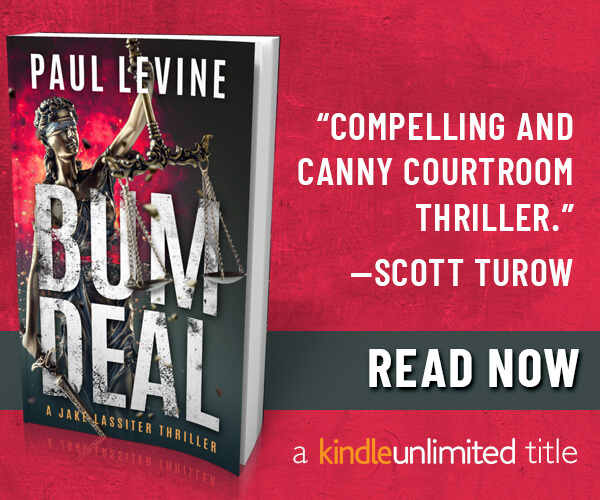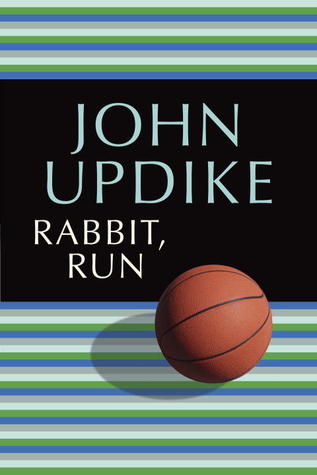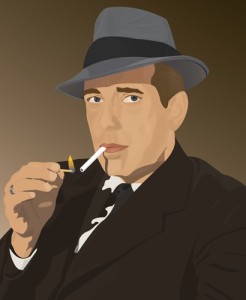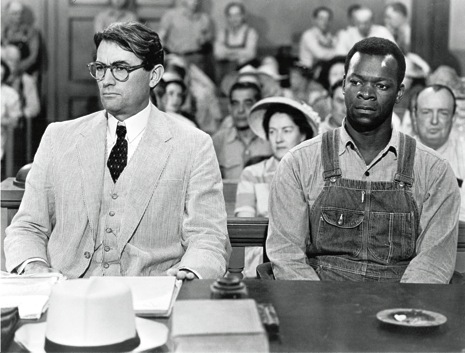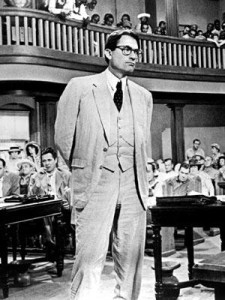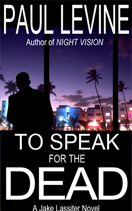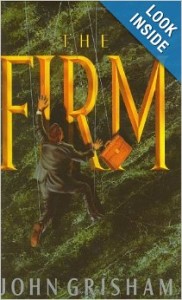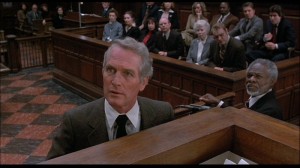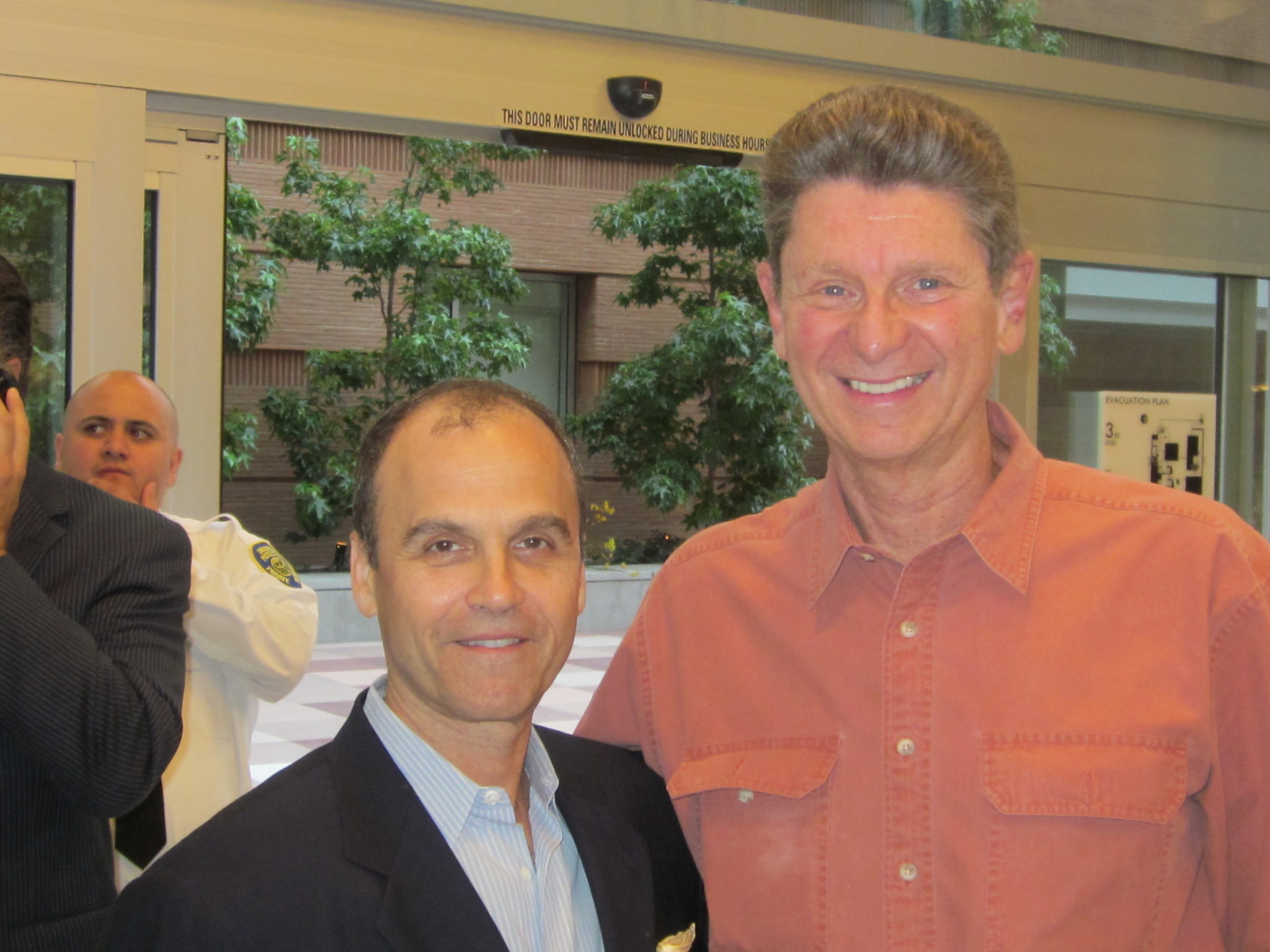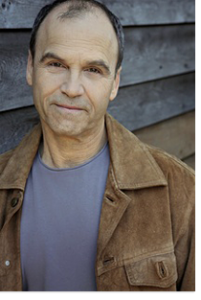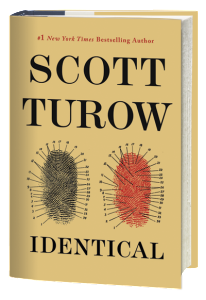By Paul Levine
When I wrote BUM DEAL (2018), the 13th of the Jake Lassiter Series, I thought it was the final chapter. That’s right. I planned to bid farewell to my old pal Jake, the second-string linebacker who trudged through night law school and became a combative Miami trial lawyer.
Sure, it was a bit sad for me, but Jake’s been having these problems – memory lapses, confusion, headaches – and it seemed like the right time to say goodbye. Dr. Melissa Gold, a neurologist who treats Lassiter during office hours and spends humid nights with him in his Coconut Grove house, fears he may have chronic traumatic encephalopathy (CTE) as a result of all those concussions on the football field.
“The past clings to us like mud on rusty cleats,” Lassiter says, and now it takes on new meaning, given his medical condition.
But…you know where this is going. Jake said no deal to BUM DEAL being his swan song. In fact, he said he’d break all my fingers to keep me from typing “The End.” Yes, I know he’s fictional, but trust me, I heard him say it. More about this in the “Update” below.
My first work of fiction – if you don’t count my legal briefs – was TO SPEAK FOR THE DEAD, published in 1990. The book, which has sold well more than two million copies, introduced Jake Lassiter, who early on admitted, “They don’t call us sharks for our ability to swim.” 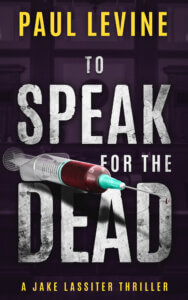
A dozen more Jake Lassiter novels followed, including the ingeniously titled LASSITER, in which our hero hides a shameful secret from his past, LAST CHANCE LASSITER, a prequel that reveals how getting fired from his first job as a lawyer shaped the man, and now BUM DEAL, in which Lassiter confronts his own mortality. All thirteen titles are available free to Kindle Unlimited members. 
In BUM LUCK (2017), Lassiter began showing symptoms consistent with a “precursor” to deadly CTE. I wrote about the issue in the blog item, “Why Does Jake Lassiter Want to Kill His Own Client?” Now, in BUM DEAL, facing an uncertain future, Jake undergoes experimental treatments for CTE, just as he makes a major change in his life, switching sides in the courtroom and prosecuting a surgeon accused of killing his wife. It’s a nearly impossible case with no forensic evidence, no witness, and no body. Complicating matters are Jake’s best friends-turned-antagonists, lawyers Steve Solomon and Victoria Lord, who defend the surgeon.
Drained of his mental edge just when he needs it most, my old courtroom warrior faces the possibility of losing the case and incurring even greater brain damage when he should be seeking treatment. 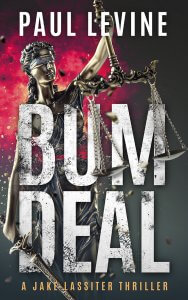
So…does Jake Lassiter win or lose the trial? And what’s his condition in when the jury returns its verdict? Hey, don’t ask! I’m keeping my trap shut, relying on attorney-client privilege, the Fifth Amendment, and my desire for you to enjoy the tale. But I will say this. It’s not Lassiter’s final chapter. 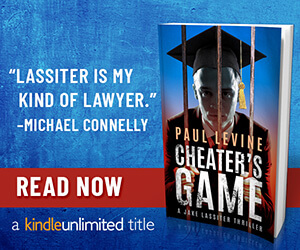
UPDATE: Jake Lassiter returns to tackle the true-to-life college admissions scandal in CHEATER’S GAME (2020). I’ll have more to say about that book soon.
Meanwhile, BUM DEAL is available in ebook, paperback and audio editions at Amazon and in paperback at Barnes & Noble and Indiebound.
PRAISE FOR “BUM DEAL“
“Any book with Jake Lassiter is a drop-everything, read-it-now for me – and this one has Solomon & Lord, too. BUM DEAL is fantastic.” – Lee Child, #1 Bestselling Author of the “Jack Reacher” series
“’Bum Deal’ is the real deal. Jake Lassiter at his smart-talking, fast-thinking best. A funny, compelling and canny courtroom thriller, seasoned with a little melancholy and a lot of inside knowledge.” — Scott Turow, #1 New York Times bestselling author
“Fascinating, fully developed characters and smart, well-paced dialogue keep the pages turning. Levine manipulates the expectations of the reader as skillfully as Jake manipulates the expectations of the jury” — Publishers Weekly (starred review)
“Full to the brim with the humor, courtroom brilliance and subtle pathos that have made Levine’s other novels winners.” – Bookreporter
“A terrific setup, razor-sharp repartee, and enough plot reversal to make your head swim like an afternoon daiquiri, Bum Deal is vintage Paul Levine: entertaining and exceedingly smart.” —Andrew Gross, #1 New York Times bestselling author
“Jake Lassiter is up against his greatest challenge—an incurable, brain-wasting disease that threatens to rob him of his brilliant, legal mind when he needs it the most. It’s an astonishing, bittersweet, and daring gamble, but those are the qualities that have always set Levine and Lassiter apart from the pack.” — Lee Goldberg, #1 New York Times bestselling author
